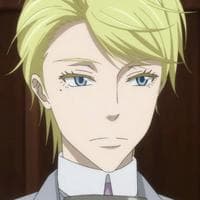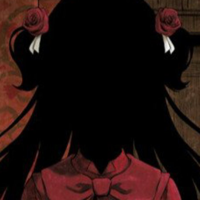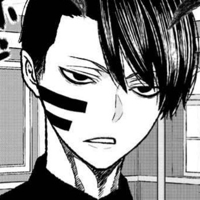William James Moriarty mbti kişilik türü
Kişilik
"William James Moriarty hangi kişilik türü? William James Moriarty, MBTI, 1w2 - so/sx - 154 'de INTJ kişilik türüdür, RCOAI, RCOAI, büyük 5, LIE' dır."
Convergent Ni-Fi has a holistic internalized awareness of how people's values and identity constructs are represented within the greater social mechanisms through the lens of Te, through understanding how underlying sentiments and experiences manifest in it's interaction with these systems and influence them, be it frustration, resentment, anger, or fear. They deliberately reflect on the abstract internal perception they limbically associate/resonate with, since they see it as their responsibility to embody their ideal which is part of what contributes to the fluid, self-transformative nature of their identity and the need to fully understand what that represents and reflects about the nature of the external world and subsequently themselves, while maintaining it's detachment from the 'self' unlike Si-Fi which is attached to the 'self-concept'. It's also the reason why Ni-Fi often relies on 'inclusive speech' to convey their ideals so it resonates with others, creating the impression of Ni-Fe. And the same goes for arguments suggesting he must have low Fi because he doesn't have a highly personal motive/reason, since Ni-Fi can conjure a 'self-concept' that contains element of the 'whole' and not attached to or constrained by their subjective experiences. Often resulting in them not having a concrete self concept or identity, in their attempt to integrate the abstract and the metaphysical as part of themselves. "Our lives should have the same value. Everyone should have the equal right to happiness. This class system places a curse on people. Thus people's hearts are tainted and twisted giving rise to devils. Once the devils are casted out, people's hearts become clear again, and the curse is lifted" [Ni-Fi 1w2 compliant type] As for cognitive introversion, and why he isn't a Te dom, Moriarty doesn't consult or reference the external world or frameworks in order to form his perspective in alignment with what the world demands from him and tethering to it a notion of 'duty', neither does he rely on external universal language/systematic logical constructs or rules to communicate it. In his conversation with Albert, he doesn't convey the impracticality of the existing social infrastructure through reason, but rather his vision of what the ideal world should embody and represent to gauge whether it resonates with him. Vision not derived from direct external assocations or observations of the concrete reality, but through forming an interal perception of the nuances that underlies it in order to understand the core of the conflict (Ni-Fi). Auxillary divergent Te leverages on their awareness of how the external mechanisms operate in order to effectively establish/manifest that internal ideal. Divergent Te operates 'from within the system', by turning it's rules/structure against itself over time through nfluencing the 'core' of the system, while also maintaining a form of 'homeostasis/stability' within that domain. What he ultimatelly assumes responsibility for is his ideal and it's influences, not the specific systematic implementation of it. He connects with people through solidarity built on a shared ideal, rather than systematically convincing people of the objectivity and rationale of his framework. Contrary to converegnt Te-Se who are often revolutionaries in a more direct manner, by constructing system and crafting the most effective route to enforce it and accrue power, while actively opposing and challenging the existing infrastructure, taking charge of the details and components of their strategy and observing it's development. The internalized representation of vision of auxillary divergent Ni tends to be a lot more static and unyielding, constructed in favor of a Te framework/decision rather than inspite of it. The final arc also shows that he didn't consider himself to be exempt from his principles, and thus to redeem himself from the guilt he'd internalized despite seeing himself as the necessary evil, and a catalyst of a social transition. Arguments saying that he wasn't really a 'moral' person since he instigated Albert into killing his own brother are likely relying on a very specific interpretation of what 'morals' entail. ENTJs are more likely to have a firm grasp on 'justice' and posit themselves as the authority or final arbiter of it, and perceiving it as an objective construct through it's practicality, which is antithetical to convergent Ni-Fi which is much more aware of it's idealistic nature and thus continuously pursue it's perfection. "I don't consider the actions I'm taking to be in the name of Justice. I've never believed that a person has the right to pass judgement on another. No matter how heinous the person was, I am cognizant of the ever accumulating offences I am commiting. No matter what I do, I can't rub the stain out of my scarlet stained hands" "I trampled down your resolve to stake your own life. I believe myself deserving of being killed by you right here"
Biyografi
Kişilik correlate

Sherlock Holmes

Louis James Moriarty

Albert James Moriarty

Irene Adler / James Bonde

Sebastian Moran

Fred Porlock

Charles Augustus Milverton

Mycroft Holmes















